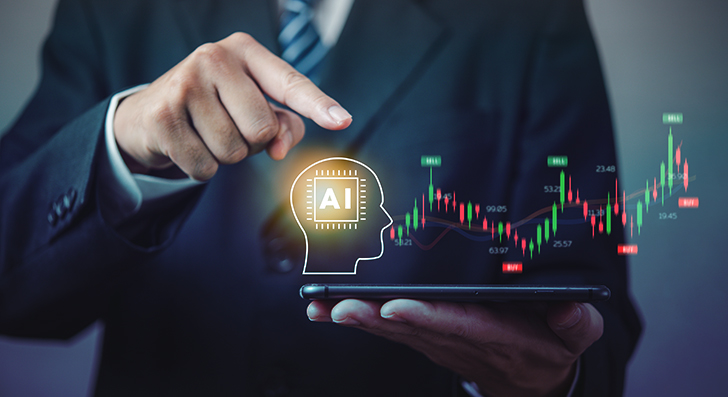The stock market is a complex and dynamic environment where prices are influenced by a multitude of factors, including economic indicators, corporate performance, geopolitical events, and investor sentiment. Predicting stock market movements with accuracy has long been a challenge for investors and analysts alike. However, with the emergence of Artificial Intelligence (AI) technologies, there has been a paradigm shift in the way stock market forecasting is approached.
The Power of AI in Stock Market Prediction:
AI encompasses a variety of technologies, including machine learning, deep learning, natural language processing, and neural networks, which have shown remarkable capabilities in analyzing vast amounts of financial data and identifying patterns and trends that may not be apparent to human analysts. By processing and interpreting data at speeds far beyond human capacity, AI algorithms can generate insights and predictions that can help investors make more informed decisions in the stock market.
Data Analysis and Pattern Recognition:
One of the key strengths of AI in predicting stock market movements lies in its ability to analyze large datasets comprising historical market data, company financials, news articles, social media sentiment, and more. AI algorithms can identify subtle correlations and patterns in these datasets that may signal upcoming market movements or trends. For example, AI can analyze historical price movements and trading volumes to identify recurring patterns or anomalies that may precede market fluctuations.
Sentiment Analysis and News Parsing:
AI-powered sentiment analysis tools can also scan news articles, social media posts, and other sources of information to gauge investor sentiment and market sentiment in real-time. By analyzing language patterns and sentiment indicators, AI algorithms can assess whether news events or public perceptions are likely to impact stock prices positively or negatively. This real-time analysis allows investors to react swiftly to emerging trends and news developments.
Algorithmic Trading and High-Frequency Trading:
AI is also revolutionizing algorithmic trading and high-frequency trading (HFT) strategies. AI-powered trading algorithms can execute trades at lightning-fast speeds based on pre-defined criteria, such as price movements, volume spikes, or market sentiment indicators. By leveraging AI, traders can automate trading strategies and capitalize on fleeting market opportunities that may arise within milliseconds.
Challenges and Considerations:
While AI offers immense potential in stock market prediction, it is not without its challenges. Market dynamics are influenced by a multitude of unpredictable factors, and historical data may not always accurately reflect future market behavior. Additionally, AI algorithms may be susceptible to biases or overfitting if not properly trained or validated. Therefore, it is essential for investors to exercise caution and complement AI-driven insights with fundamental analysis and market expertise.
As AI technologies continue to advance, the future of stock market prediction looks promising. By harnessing the power of AI to analyze data, detect patterns, and generate predictions, investors can gain valuable insights into market trends and make more informed investment decisions. While AI is not a crystal ball that can predict market movements with certainty, it is a powerful tool that can complement traditional analysis methods and enhance the decision-making process in the fast-paced world of finance.
Team T2S1.

